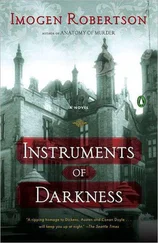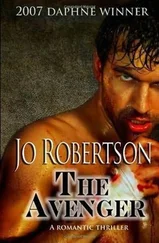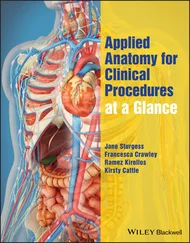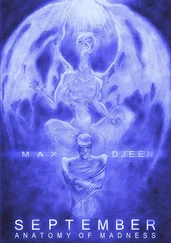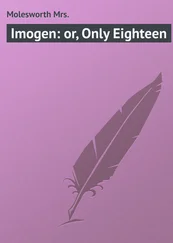Imogen Robertson - Anatomy of Murder
Здесь есть возможность читать онлайн «Imogen Robertson - Anatomy of Murder» весь текст электронной книги совершенно бесплатно (целиком полную версию без сокращений). В некоторых случаях можно слушать аудио, скачать через торрент в формате fb2 и присутствует краткое содержание. Год выпуска: 2012, Издательство: PENGUIN group, Жанр: Исторический детектив, на английском языке. Описание произведения, (предисловие) а так же отзывы посетителей доступны на портале библиотеки ЛибКат.
- Название:Anatomy of Murder
- Автор:
- Издательство:PENGUIN group
- Жанр:
- Год:2012
- ISBN:нет данных
- Рейтинг книги:5 / 5. Голосов: 1
-
Избранное:Добавить в избранное
- Отзывы:
-
Ваша оценка:
- 100
- 1
- 2
- 3
- 4
- 5
Anatomy of Murder: краткое содержание, описание и аннотация
Предлагаем к чтению аннотацию, описание, краткое содержание или предисловие (зависит от того, что написал сам автор книги «Anatomy of Murder»). Если вы не нашли необходимую информацию о книге — напишите в комментариях, мы постараемся отыскать её.
Anatomy of Murder — читать онлайн бесплатно полную книгу (весь текст) целиком
Ниже представлен текст книги, разбитый по страницам. Система сохранения места последней прочитанной страницы, позволяет с удобством читать онлайн бесплатно книгу «Anatomy of Murder», без необходимости каждый раз заново искать на чём Вы остановились. Поставьте закладку, и сможете в любой момент перейти на страницу, на которой закончили чтение.
Интервал:
Закладка:
She remembered listening, one evening the previous spring, to a small group of musicians who came to play in the little assembly hall by the coaching inn in Pulborough. Rachel, her sister, had been very keen to attend, so Harriet had escorted her there. She had been listening to some slower piece the gentlemen were playing, and thinking it quite pleasing when she caught sight of her sister’s profile. Rachel had been not merely attentive, but transfixed, and her eyes were, Harriet had been astonished to realize, full of tears. Harriet had looked about her and seen a similar look of divine reverie on the faces of several of her acquaintance in the crowd, recalled it on the face of her husband when he had persuaded her to go to some concert on his arm. She had felt stupid and slow by comparison and judged herself as oddly insensitive, even though she was sure she loved, feared and dreamed as passionately as anyone else in those audiences. Now, since James’s continued illness had brought them to London and the home of their friends in Berkeley Square, she was continually surrounded by music. Lady Susan Thornleigh was, at eleven, an accomplished player on the harpsichord. Graves studied and loved music, as well as having it occupy his business life. It was as essential as air to them both.
Harriet remembered questioning Graves earlier in her stay about the effects of music, somewhat petulantly, when she had been a mute witness to an impassioned discussion of the technicalities of one of Mr. William Boyce’s symphonies, and its relative merits compared with some new score by a Mr. Haydn just brought, with great fanfare, by a gentleman who had been traveling in Austria.
“But Graves, what does it all mean?” she had said.
Graves crossed and uncrossed his legs several times before replying, drew in his breath and lifted his hand as if about to begin, then let it fall again, till at last he said with an apologetic shrug of his shoulders: “Mrs. Westerman, music does not mean anything at all. You cannot ask it to speak to you in such concrete terms. It can evoke, affect, cajole and persuade, but its language is not that of speech. Indeed, if a composer can say in literal terms what his music means, he had much better write prose than notes.” He saw that his answer did not satisfy her, and after a moment tried again. “Let music, when you hear it, work on you in its own way, Mrs. Westerman. Let it flow around you and find its own way to touch you. It is not something you must translate moment by moment. Give it your attention. If it fails to speak to you in its own manner then, well, it is a failure in the music, not in yourself.” Harriet had promised to try his advice, but remained doubtful.
She sighed again and Crowther’s pen ceased to scratch.
“Mrs. Westerman?”
“I do not understand this city, Crowther,” she told him, “and that is a concern to me. The noise, the continual bustle of the place, the air. How are we to manage?”
He placed his pen down on the papers in front of him.
“If it is any comfort, I do not believe we understand or know the country either. We will manage as everyone does, Mrs. Westerman, as best we can.”
Mr. Harwood heard the last chords ring out from the auditorium and waited. The signs during the performance had been promising, but it was now in this moment of silence that the fate of the season would be decided.
Two, three seconds passed-then a roar of noise broke like a tidal wave across the theater. It lifted and expanded; a storm of applause. The paneling of his room seemed to swell with the force of the muffled “Bravos!” making the portraits shift on the walls. The little plaques below each were a product of his own imagination. His predecessors had been primarily businessmen like himself, and never bothered to commemorate themselves in oils. He had bought the portraits as a job lot from a man who had lost his fortune one night at the card table and now used that man’s anonymous forebears to suggest an artistic lineage he did not have. Everything within these walls was spectacle.
The audience were still hysterical with pleasure. Harwood smiled. He thought how, on such an occasion, he could have guaranteed that even in this moment Fitzraven would be falling over his threshold to tell him the details of the rapturous reception. He would have noted the encores of each aria, gathered compliments or overheard twenty little fragments of other people’s conversations he would be desperate to scatter across Harwood’s desk like an explorer throwing down gems before his prince.
Harwood went to the window; he still had a few moments before he needed to play host to his royal guests and shower warmth on his performers. The Withdrawing Rooms this evening would be heady with the scent of glory, a golden sweat, his artists glutted and drunk with their triumph. He doubted if they would register the news of Fitzraven’s murder at all.
Looking out across the damp gray and shadowed roads around him, he wondered if the strength of the applause might be audible in Great Suffolk Street, where Justice Pither had his house and Fitzraven rested, wondered if its echo flowed over the man’s cold corpse and whispered in his empty ear. Then, smoothing his coat, he turned away from the night, prepared to leave his office with a proper air of modest pleasure. He would appear gratified, and each word of praise he solicited would sound to him like gold knocking on gold.
PART III
1
SUNDAY, 18 NOVEMBER 1781
London rolled over in its bed and yawned at the approaching morning, then cursed it. In the churches, old men turned large keys in the doors and shoved them cautiously open, letting the darkness out before the first worshippers found their way in. Those who had got enough pennies together to drink the night before flinched at the dawn and their empty pockets. In the better houses, young girls, their hands already worn red with work and cold water, cleaned the grates and set the fires, dreaming of the narrow beds they had just left. In the rookeries the day began with angry growls and hands grasping for what comfort they could find in the dark. Another day to live through.
The night had gone and dawn was wearying away at the skin of the November gloom as best it could when there was a low tap at Jocasta’s door. She was in her usual place among the patchwork blankets on her little settee, but everything existed in only shades of gray. Her fire had gone out and she had lit no candle. Until she jerked her head up at the knock, the scene could have been one of stone; even Boyo was still and waiting.
“Come in then,” she said, not bothering to raise her voice. The door opened a crack, and a little boy peered round its edge. He looked very young, and mangy. His fingers were black with filth, and his hair so greasy it looked like he’d been dipped into a tar pit by his heels.
“Mrs. Bligh? Ripley said I should come to you once I’d seen the morning in. Tell you what I been looking at on Salisbury Street.”
“Good lad. Ripley said he’d send Sam. That you?” He nodded. “You been there all night?”
The lad began to sidle around the door and rubbed his nose on his hand. “I have, Mrs. Bligh.” He paused.
Jocasta waited a moment then looked up at him frowning. “Out with it, boy.”
“Mrs. Bligh, I don’t mean no disrespect, but are you a witch, Mrs. Bligh?” The words tumbled out of him like a sailor’s pay.
Jocasta sucked on her few good teeth. “Wish that I were. But if I were, you’d see more frogs and toads round here and fewer men. I have my talents. See forward sometimes. Right-I’ve satisfied your asking, now satisfy mine.”
The boy looked a bit confused and Jocasta thought for a second he wouldn’t have the sense to stop with his own questions, but he seemed to take a hold of himself and said, “Ripley told me at your asking to stay outside the Mitchell place. By the time I got myself there, there was a candle lit, and a lady walking about inside. Young, like.”
Читать дальшеИнтервал:
Закладка:
Похожие книги на «Anatomy of Murder»
Представляем Вашему вниманию похожие книги на «Anatomy of Murder» списком для выбора. Мы отобрали схожую по названию и смыслу литературу в надежде предоставить читателям больше вариантов отыскать новые, интересные, ещё непрочитанные произведения.
Обсуждение, отзывы о книге «Anatomy of Murder» и просто собственные мнения читателей. Оставьте ваши комментарии, напишите, что Вы думаете о произведении, его смысле или главных героях. Укажите что конкретно понравилось, а что нет, и почему Вы так считаете.





